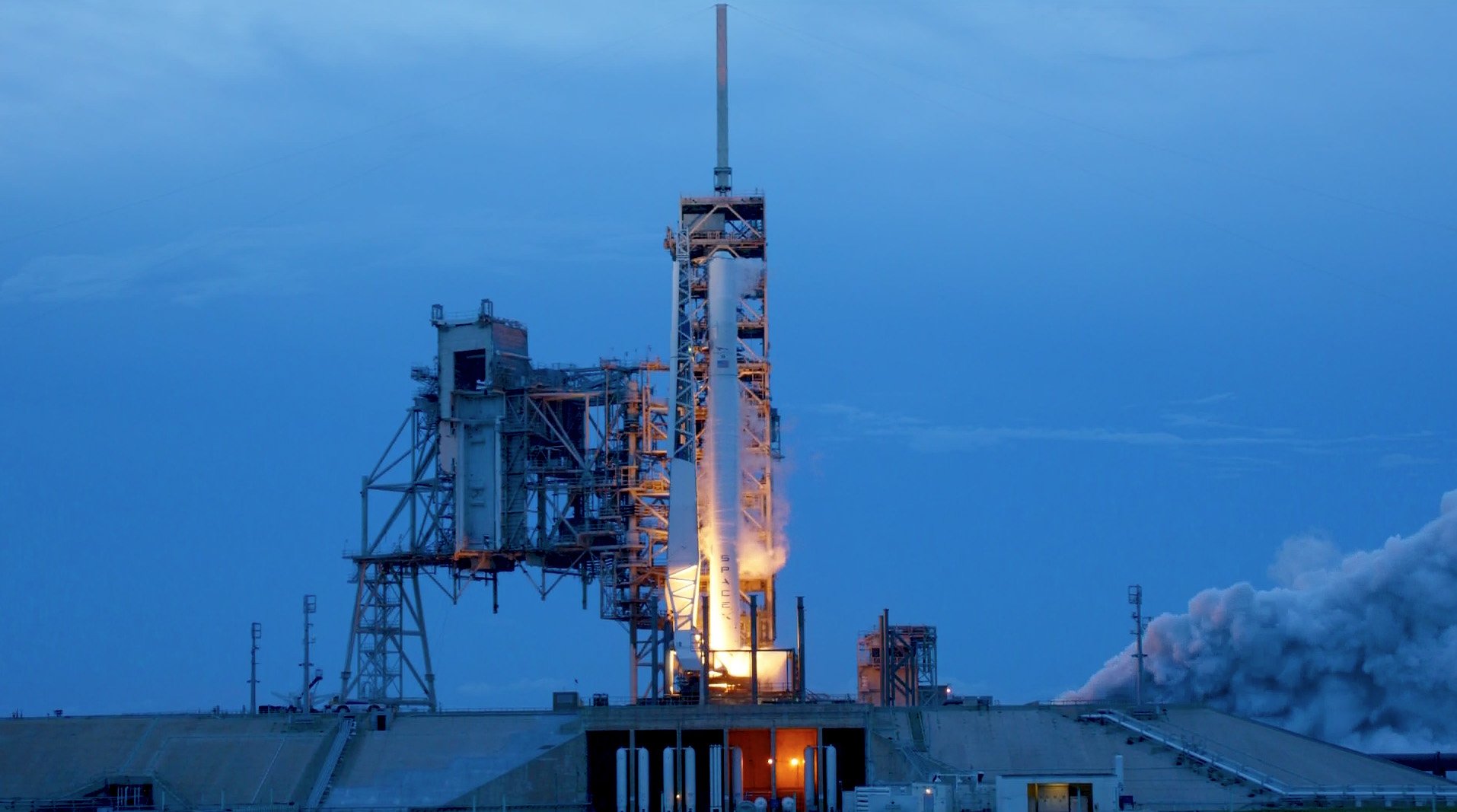
SpaceX test-fired a Falcon 9 rocket yesterday (June 29), helping pave the way for a planned launch this weekend.
The nine Merlin engines on the booster's first stage blazed up during a standard "static fire" test yesterday evening at historic Launch Complex 39A, part of NASA's Kennedy Space Center in Florida.
If all goes according to plan, the Falcon 9 will lift off at 7:36 p.m. EDT (2336 GMT) Sunday (July 2) from Pad 39A, carrying the Intelsat 35e communications satellite to orbit in SpaceX's third launch in the span of 10 days. You can watch Sunday evening's launch live at SpaceX's website, or here at Space.com.
The California-based company also successfully lofted the communications satellite BulgariaSat-1 on June 23 from Pad 39A. And SpaceX launched 10 spacecraft for the satellite-communications company Iridium on June 25, from Vandenberg Air Force Base in California.
On both of those missions, Falcon 9 first stages returned for successful landings on robotic SpaceX "drone ships" stationed in the ocean. No such touchdown is planned during Sunday's mission, however; getting the 6.6-ton (6 metric tons) Intelsat 35e aloft will require so much fuel that the booster won't have enough left to maneuver its way back down to Earth. (You can see in the static-fire image that the Falcon 9 first stage is not outfitted with landing legs.)
Sunday is shaping up to be a very busy day for SpaceX. That same morning, the company's robotic Dragon cargo capsule will detach from the International Space Station (ISS) after a one-month stay and make its way down to Earth for a soft splashdown in the Pacific Ocean.
The current ISS trip is the second for that particular Dragon. Such reuse is a priority for SpaceX and its billionaire founder and CEO, Elon Musk, as they aim to slash the cost of spaceflight by re-flying rockets and spacecraft. The Falcon 9 that launched BulgariaSat-1 had a reused Falcon 9 first stage, as did the rocket that lofted the SES-10 communications satellite on March 30.
Get the Space.com Newsletter
Breaking space news, the latest updates on rocket launches, skywatching events and more!
Follow Mike Wall on Twitter @michaeldwall and Google+. Follow us @Spacedotcom, Facebook or Google+. Originally published on Space.com.
Join our Space Forums to keep talking space on the latest missions, night sky and more! And if you have a news tip, correction or comment, let us know at: community@space.com.

Michael Wall is a Senior Space Writer with Space.com and joined the team in 2010. He primarily covers exoplanets, spaceflight and military space, but has been known to dabble in the space art beat. His book about the search for alien life, "Out There," was published on Nov. 13, 2018. Before becoming a science writer, Michael worked as a herpetologist and wildlife biologist. He has a Ph.D. in evolutionary biology from the University of Sydney, Australia, a bachelor's degree from the University of Arizona, and a graduate certificate in science writing from the University of California, Santa Cruz. To find out what his latest project is, you can follow Michael on Twitter.









